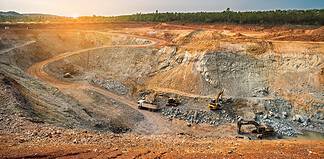 THE NSW Government is set to cancel lucrative exploration licences in the Hunter Valley and refuse compensation to owners NuCoal Resources and Cascade Coal, following corruption findings by the Independent Commission Against Corruption (ICAC).
THE NSW Government is set to cancel lucrative exploration licences in the Hunter Valley and refuse compensation to owners NuCoal Resources and Cascade Coal, following corruption findings by the Independent Commission Against Corruption (ICAC).
Late in 2013, the ICAC found former Primary Industries and Mineral Resources minister Ian Macdonald corrupt for granting a licence to Doyles Creek Mining, chaired by friend and former union boss John Maitland, for coal exploration in the Hunter Valley.
Mr Macdonald was also found corrupt for creating a mining tenement at Mount Penny in the Bylong Valley on land owned by the family of former Labor minister Eddie Obeid.
In its report released on December 18, the ICAC stated that the granting of the licences for Doyles Creek [owned by NuCoal, through the acquisition of Doyle Creek Mining], Mount Penny and Glendon Brook [both owned by Cascade Coal] was “so tainted by corruption that those authorities should be expunged or cancelled and any pending applications regarding them should be refused”.
“…the recommended legislation could be accompanied by a power to compensate any innocent person affected by the expunging (and, if the NSW Government deems it appropriate, any refusal to grant relevant pending applications) to the extent that this was considered appropriate,” the report stated.
“Such legislation would have the benefit of reducing risks arising from challenges in the courts to any ministerial decision to cancel or not renew current licences or leases and to refuse to grant any authorities.”
On 20 January, NSW Premier Barry O’Farrell announced the government would introduce legislation to cancel the three exploration licences.
“The legislation will require all exploration data on the tenements to be provided to the NSW Government and provide that the licence holders will remain responsible for any necessary rehabilitation works on the sites,” Mr O’Farrell stated.
“There is no intention to immediately re-release the affected areas but any future process for issuing licences will be consistent with the NSW Government’s implementation of the ICAC’s recommendations on probity.
“No compensation is to be provided for thecancellation of these licences.” Mr O’Farrell said that the legislation would protect taxpayers from any possible claims relating to either the issuing or the cancellation of the licences.
“This draws a line under this sorry saga of Labor politics and corruption in NSW,” he said.NuCoal chairman Gordon Galt was quick to rally against the government’s decision, calling it “grossly unfair”, particularly as the ICAC had suggested the government consider
compensation.
“There has been no consultation at all in regard to this matter and given that only three working days have elapsed since our submission was lodged, it is difficult to believe that the decision to pursue the course announced by the government was made with a mind open to persuasion and not pre-set,” Mr Galt said.
“The submission clearly pointed out legal and factual errors in the bases used by the ICAC for its recommendation to cancel the EL [exploration licence], which have not been rebuffed, and unjust inconsistencies in the ICAC’s recommendation.
“It is unacceptable that a government considers that it has the right to take – with no compensation – the results of all the detailed exploration results NuCoal paid for and the many upfront payments NuCoal made – when it was the government of NSW itself that insisted that we spend these funds in accordance with the conditions of the EL.
“NuCoal is nothing but an innocent party in this matter, as was admitted by the Premier prior to the commencement of the ICAC inquiry. The government has focussed on the easy target and the destruction of a demonstrably innocent company and its 3400 shareholders.”
Cascade Coal managing director John McGuigan wrote an open letter to the government, reiterating NuCoal’s sentiment that the decision was “grossly unjust”. The company had also lodged a summons in the Supreme Court to have the ICAC report annulled.
“It’s not been done lightly – it’s been done after taking very detailed advice and it is something that would not have been pursued if we did not believe it was soundly based,” Mr
McGuigan said.
Both companies hoped the government would meet with them face to face to discuss the issues.
Advertisement











































